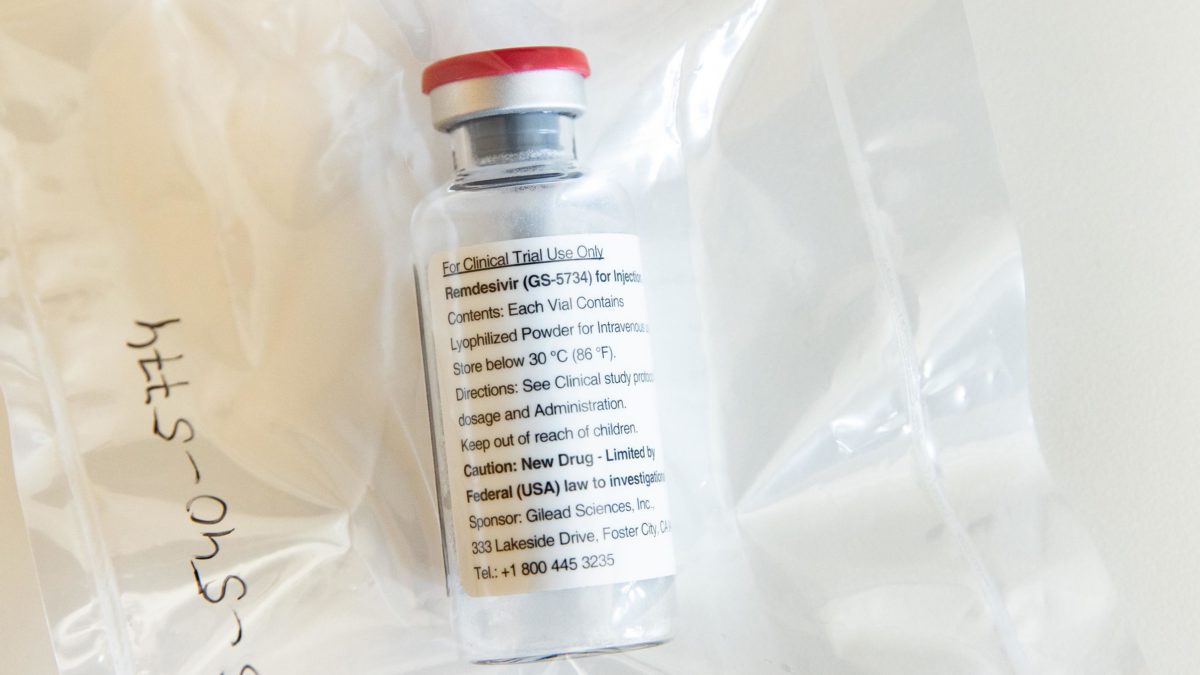One of the first carefully done studies of the antiviral drug remdesivir shows it did not help people recover faster from coronavirus infections. But the study, conducted in China, may have been too small to show clearly whether the drug helps.
The findings of the Chinese study conflict with other hints of the drug’s efficacy coming from other trials – two of them also on Wednesday. One study was from the company that makes the drug and a third study from the National Institutes of Health is expected later on Wednesday.
Experts say it’s going to take a lot more testing and a little longer before it’s clear whether remdesivir can help patients recover from Covid-19 infections.
The study conducted in China was stopped early because there weren’t enough patients, but it indicated that the drug did not work as hoped, the team reported in the Lancet medical journal on Wednesday. Some details of this study were posted last week on the World Health Organization’s website, then removed.
Gilead said earlier on Wednesday that its own study of the drug showed it may work and that patients who took the drug for five days or 10 days saw similar results. Gilead’s study results have not yet been published in a peer-reviewed medical journal. The study done in China was more carefully designed than Gilead’s study to show whether the drug was helping patients.
The Lancet study was a randomized, placebo controlled study – meaning that patients were randomly given the drug or a dummy treatment and the patients and doctors did not know who was getting what.
The team at China-Japan Friendship Hospital and Capital Medical University in China tested the drug using 237 coronavirus patients in Wuhan.
“Unfortunately, our trial found that while safe and adequately tolerated, remdesivir did not provide significant benefits over placebo,” Bin Cao, the researcher who led the study, said in a statement.
“Future studies need to determine whether earlier treatment with remdesivir, higher doses, or combination with other antivirals or SARS-CoV-2 neutralizing antibodies, might be more effective in those with severe illness,” he added.
The study may not tell anything meaningful. Larger studies enrolling more people, and conducted with careful controls will be needed to tell whether various treatments work.
“The study was well designed—a double-blind, placebo-controlled, multicenter randomized trial—and well conducted, with high protocol adherence and no loss-to-follow up,” John Norrie of the University of Edinburgh, who was not involved in the study, wrote in a commentary.
“We eagerly await the ongoing trials.”


